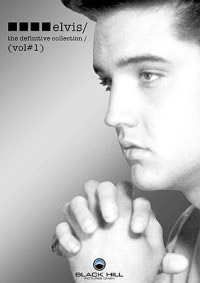The U.S. District Court of Appeals for the Ninth Circuit held Nov. 6 that unauthorized use of extensive video footage of Elvis Presley for a "rockumentary" was not a fair use.
The case, Elvis Presley Enterprises v. Passport Videos, affects everyone who makes and watches video biographies, such as VH1's "Behind the Music," "E! True Hollywood Story" and A&E's "Biography."
The decision sets the stage for a potential collision of First Amendment and copyright issues, according to intellectual-property lawyers.
The ruling also suggests that makers of video biographies may have a harder time establishing a fair-use defense than print biographers.
In this case, Passport created a 16-hour video documentary titled "The Definitive Elvis." The video was sold at retail outlets for $99. The biography featured copyrighted TV and other videoclips.
The plaintiffs -- who include songwriting duo Jerry Leiber and Mike Stoller and Steve Allen's widow, Jane Meadows Allen -- own copyrights to TV footage of Presley's appearances on shows hosted by Allen and Ed Sullivan. They also own rights to Presley's songs, still photographs and footage of his 1968 comeback special.
Passport was not able to get permission from all of the plaintiffs to use various clips for its rockumentary. The plaintiffs sued for copyright infringement and sought an injunction barring Passport from selling the documentary. The lower court granted the preliminary injunction. The Ninth Circuit affirmed the ruling, over vigorous objections of the lone dissenting judge.
"Passport crosses the line by making more than mere references ... and by significant portions of these copyrighted materials," the majority opinion states.
The decision is controversial because makers of "unauthorized" biographies may not be able to get or afford permission to use performance clips, songs, etc., so they'll have to rely on the fair-use defense of the Copyright Act.
But what constitutes fair use remains one of the toughest, most fact-specific questions in copyright law today. "There are very few, if any, legal bright lines," says Jay S. Handlin, a partner with Howrey Simon Arnold & White in Los Angeles. That means people don't know in advance what they can or can't do.
The Ninth Circuit's copyright analysis suggests that a scholarly work or a historical analysis would be more likely to qualify for the fair-use defense than a commercial video documentary.
The opinion could be read to mean that only very brief snippets of performance footage constitute fair use, experts explain.
But it's hard to see how anyone could make a serious video biography of a musical artist, especially a great live performer such as Elvis or Bruce Springsteen, without using extensive performance footage and letting the performances speak for themselves.
In the context of print biographies, cases deciding what's fair use have been some of the most important -- and controversial -- copyright decisions during the past 20 years.
In Harper & Row v. Nation Enterprises (1985), the U.S. Supreme Court ruled that The Nation magazine's unauthorized use of only 300 words from a 200,000-word, soon-to-be-published autobiography of Gerald Ford wasn't a fair use, because the material the magazine used went to the "heart" of the book: Ford's pardon of Richard Nixon.
Similarly, the 1987 decision in Salinger v. Random House ticked off many biographers and publishers.
There, the Second Circuit stopped the publication of an unauthorized biography of J.D. Salinger because the biographer made extensive use of several unpublished letters by Salinger.
Now that video biographies are such a cultural phenomenon, the Elvis decision could have the same kind of impact.
Elvis Case Sets Stage For First Amendment
December 20, 2003 | Other
Related links
EPvoicefan wrote on
January 02, 2004
All I can say is I'm glad I got mine when I did! This is all ridiculous(IMO).
